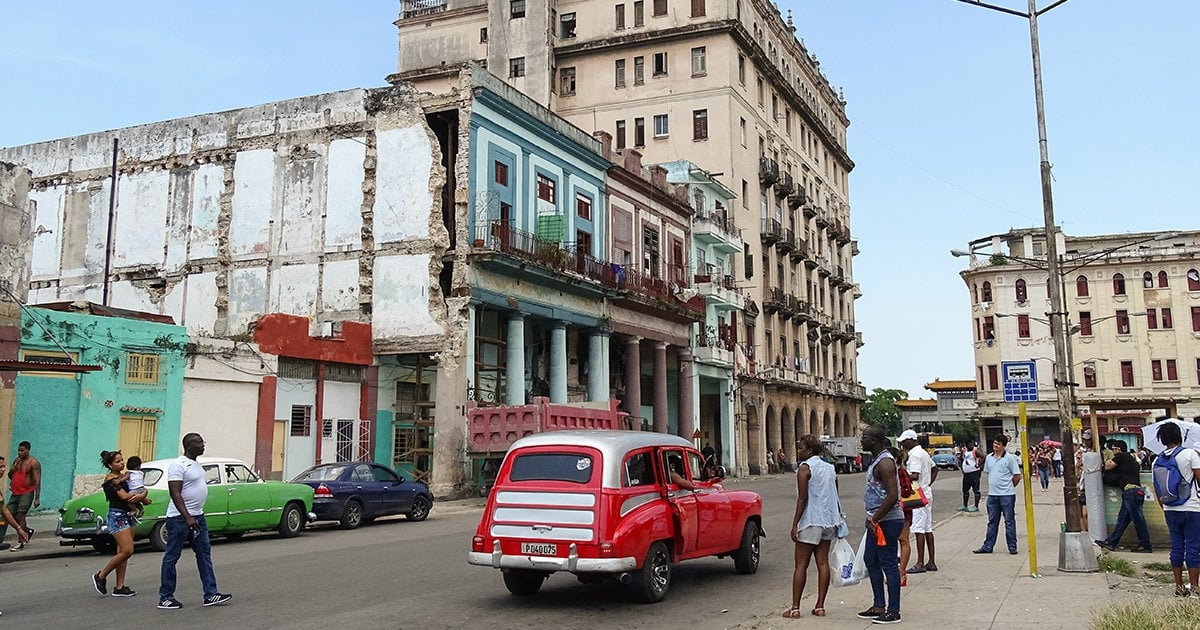The recent surge in the deployment of inspectors and police in Havana has ignited significant discontent among private taxi drivers, commonly known in Cuba as "boteros." The authorities are imposing fines on those who fail to adhere to the regime's established fares, but the transporters argue that these fixed prices are "irrational" given the exorbitant costs of fuel and spare parts.
Since last Thursday, inspectors have ramped up their presence in the capital, issuing tickets ranging from 8,000 to 14,000 pesos, according to reports from Martí Noticias. In a report by the news outlet, Rafael Alba Macías, a taxi driver operating at the El Curita park stand in Centro Habana, explained: "Today many were saying they wouldn't work. The problem is that fuel is very expensive on the street, a liter of diesel costs up to 350 pesos, and a liter of oil up to 3,000. You can't make a profit, and the government doesn't see that."
The official fare set for the route between El Curita park and Boyeros is 150 pesos. However, the "boteros" charge this route in segments of 100 pesos each, due to the high operational costs.
Impact on Public Transportation
The increase in controls has led to overcrowding at bus stops, as confirmed by several residents of the capital. Enrique Díaz, an independent journalist in Marianao, commented that "the government has no way to meet the demand" for public transportation.
The Minister of Transport, Eduardo Rodríguez Dávila, recently acknowledged the collapse of the sector in recent months, indicating that between January and June of 2024, public transportation usage saw a decline of nearly 50 million passengers compared to the same period in 2023.
This situation is not new; last year, a similar crackdown on the private transportation sector resulted in the halt of dozens of taxis for weeks, creating chaos in the streets of the capital.
The recurrence of these conflicts underscores the persistent tensions between the state and private sectors in Cuba's transportation field, which extends to almost all sectors amid severe crises on the island.
FAQs on Havana's Increased Inspector Presence and Private Taxi Drivers' Discontent
Here are some frequently asked questions regarding the recent increase in inspector presence in Havana and its impact on private taxi drivers.
Why are private taxi drivers in Havana discontented?
Private taxi drivers, or "boteros," are upset due to the increased fines imposed by inspectors for not adhering to fixed fares, which they argue are unrealistic given the high costs of fuel and spare parts.
What are the official fares, and why are they considered irrational?
The official fare for the route between El Curita park and Boyeros is 150 pesos. However, drivers find these fares irrational due to the high costs of operating their vehicles, including expensive fuel and spare parts.
How has the increased inspector presence affected public transportation in Havana?
The heightened controls have led to overcrowding at bus stops, as the government struggles to meet the increased demand for public transportation.
What is the broader impact of these conflicts on Cuba's transportation sector?
These recurring conflicts highlight the ongoing tensions between the state and private sectors in Cuba's transportation industry, reflecting broader issues affecting nearly all sectors amid severe national crises.
